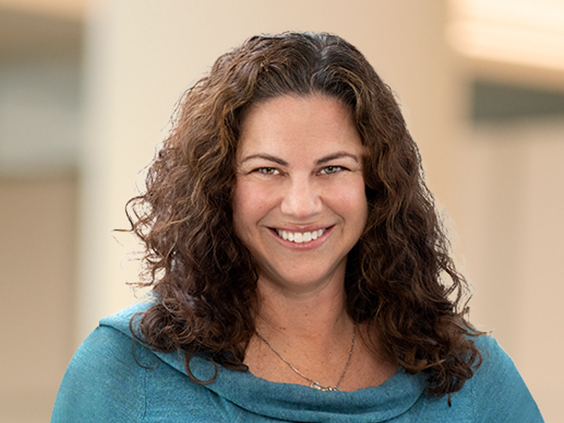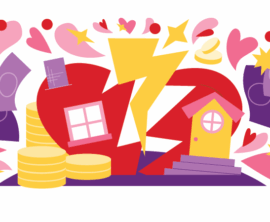Key takeaways
- Current scams targeting older adults include imposter, grandparent, romance, gift card and refund, and cryptocurrency and investment.
- Warning signs of elder fraud include missed payments, strange new friends, and excessive spending.
- Ways older adults can protect themselves include authenticating communications, guarding personal information, being skeptical of caller ID and too-good-to-be-true deals, and pausing before acting.
- Caregivers can help safeguard loved ones by communicating often, monitoring accounts, watching for changes in behavior, and confirming estate documents.
A Wells Fargo Advisors financial advisor in Florida noticed that her older adult client was taking an unusual number of distributions from his IRA. When asked why, the client said that he was doing a major remodel. Suspicious, the financial advisor requested an in-person meeting with the client and his daughter, a trusted contact, to understand the activity. There, the client admitted that he was providing the distributions to his former daughter-in-law. After discussing further, the client agreed to give his daughter power of attorney. The financial advisor discovered additional distributions from other institutions, and then reported it to Adult Protective Services and to the police. The former daughter-in-law was arrested and criminal charges for financial elder abuse were filed.
Unfortunately, stories like this are not uncommon. In fact, Americans over the age of 60 reported $4.8 billion in total losses to the Federal Bureau of Investigation’s Internet Crime Complaint Center (PDF) in 2024.
“The most challenging calls that we get in my office involve elder fraud,” said Rodnee Warr, a gerontologist and executive director of Wells Fargo Advisor’s Elder Client Initiatives team. “These scenarios are really heartbreaking because these scammers target a part of us that is human.”
According to the U.S. Surgeon General’s 2023 study (PDF), loneliness is a serious issue in the country right now, and the highest rates of social isolation are found among older adults. “This opens the door for scammers,” Warr said.
In a 2020 Wells Fargo study on isolation and loneliness among older people, 97% of adults 60 and older acknowledged that older adults are susceptible to financial scams. In fact, nearly half (47%) already knew someone who had fallen victim.1
If you see warning signs of vulnerability or abuse
Report it to the Federal Trade Commission and file an elder fraud complaint with the FBI.
To report fraud on a Wells Fargo account contact us immediately.
Often scammers build a relationship with the older adult over time, calling them even several times a day. “We all want to feel connected. We want to be in community with others,” said Warr.
“Even when they discover that these individuals are actually criminals who are scamming them, it is very difficult to unwind, to disrupt and stop, because they have developed a relationship,” she said. “It can be truly devastating.”
With elder fraud on the rise (PDF), staying informed about the types of scams out there, knowing the warning signs, and preparing what to do and what not to do can keep you and your loved ones safe.
What are the current scams targeting seniors?
“Some of the scams we see in my line of business are imposter scams, romance scams, and cryptocurrency scams,” said Warr. Here’s what to look out for:
Imposter scams. Someone impersonating tech support companies, government agencies, insurance companies, and even financial institutions like Wells Fargo contacts you to pressure you to act right away. They can even masquerade on your caller ID as a legitimate source. You have the right to end communication with the person who contacted you so you can have time to do more research.
“Stay informed, stay vigilant, stay aware. That is the best safeguard against financial exploitation.”
Grandparent scams. In this variation of an imposter scam, an urgent call comes in from someone posing as a grandchild or other loved one in distress requesting money via gift card, wire, or other method to help get them out of the situation.
Gift cards and refund scams. Scammers impersonate reputable companies or institutions, coercing you into purchasing gift cards for alleged debts or refund. Never provide gift card information as payment.
Romance scams. Individuals use social platforms to engage, which then leads to a phone call, conversation, and texting, all the while befriending them. The victim is typically “love bombed” — excessive flattery and praise, intense talks about a future together, and so on. After trust is gained, there is pressure to act immediately and send funds in a variety of ways for some destitute situation. Be cautious of sudden requests for financial assistance from new acquaintances.
Cryptocurrency and investment scams. Unfortunately, some scams can be a mixture of all the above. Scammers take their time to manipulate victims into making fraudulent investments, often promising “guaranteed” and “risk-free” substantial returns.
“If you meet someone on a dating site or app who wants to show you how to invest in crypto or asks you to send them crypto, that’s a scam,” said Warr. “Only scammers demand payment in cryptocurrency. No legitimate business is going to demand you send cryptocurrency in advance — not to buy something and not to protect your money. That’s always a scam.”
What are the warning signs for elder financial abuse?
If you’re looking out for a friend or family member, and notice changes in established personal and financial patterns, it could be a warning sign that they are being scammed.
Missing payments. They normally pay everything on time and are now late or forgetful of transactions they have conducted.
Strange new friends. They talk of individuals you don’t know, who may be acting as a gatekeeper.
Unusual spending. They’re using a new credit card more than they normally would, transferring assets, writing checks to cash, and more.
Changes to documents, phone numbers, or email addresses. They may have someone “managing” communications.
How can seniors protect themselves from getting scammed?
Don’t take the bait from scammers. Here are easy ways to stay aware and alert in case someone does approach you.
Authenticate communications. Verify any unexpected requests that come through email, phone call, and texts to confirm you’re speaking with a legitimate source.
Don’t trust caller ID. Scammers can “spoof” legitimate numbers by altering caller ID.
What’s the difference between fraud and scams?
Fraud is unauthorized activity from stolen information, such as a Social Security or credit card number, or filing a false tax return, without the victim’s knowledge or consent.
Scams lure people into authorizing a financial transaction or willingly supplying personal information, which makes it difficult to recover any money.
Guard your personal information. Don’t share sensitive data such as passwords, PINs, or one-time passcodes with unknown individuals. Put safeguards on your computer to ensure that messages are encrypted and that your computer is safe. Change account numbers, phone numbers, credit and debit card numbers, and passwords if your information is compromised.
Be skeptical. If it sounds too good to be true, it probably is.
Be leery of sending money in any form. This is especially true of sending funds to someone you don’t know personally or to “help” someone you’ve only met online.
Stay connected. Maintain open communication with trusted contacts, seek advice, and say something if you’re ever solicited for any money.
Pause before taking action. And avoid clicking links in suspicious emails or texts.
What can caregivers do to protect loved ones from fraud?
Caregivers play a pivotal role in safeguarding older adults from financial exploitation. Here are some tips to help protect your loved ones:
Initiate conversations. Proactively discuss financial matters, current scams and fraud, and mitigation methods.
Monitor accounts frequently. Review all credit reports, account statements, and bills for irregular activity or changes. Consider setting up account alerts for both of you. Ensure there is a beneficiary and/or co-signer listed. Consider adding a trusted contact on all brokerage accounts. Warr explains the importance of this designation in a video for Wells Fargo clients (1:25).
Watch for behavioral changes. Be on alert for sudden withdrawal or isolation, increased secrecy, a new romantic relationship, or changes to legal or financial documents.
Make sure they have the following in place: Will, durable power of attorney, health care power of attorney, living will, and revocable living trust. Read more about creating a financial caregiving plan.
“Stay informed, stay vigilant, stay aware,” said Warr. “That is the best safeguard against financial exploitation.”
For more information, resources, and tips on spotting and avoiding scams, visit the Wells Fargo Security Center.
More tips to protect yourself and loved ones
Tax fraud and scams
Tax time is historically a prime opportunity for sneaky scammers. Jennifer Hessing, a fraud analytics director at Wells Fargo, shares these red flags to help you outsmart the latest tax fraud schemes.
Scam-spotting
How good are you at spotting fakes? Scams can be difficult to detect, but here are some clues to watch for that can help you avoid becoming a victim of fraud.
Check crimes
Although check crimes are on the rise, you have the power to avoid becoming a victim, starting with your pen. Joe Bernardo, Wells Fargo head of Fraud & Claims Operations, shares tips.






